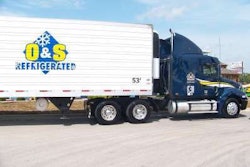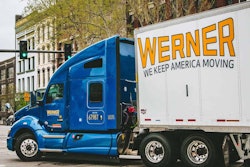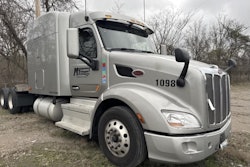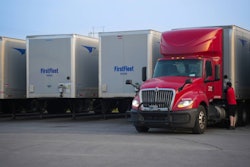FedEx Home Delivery, a division of FedEx Ground Package System, scored a major legal victory Tuesday, April 21, when a three-judge panel of the U.S. Court of Appeals for the District of Columbia declared that certain drivers are independent contractors and that FedEx, therefore, did not commit an unfair labor practice by refusing to bargain with a union certified as their collective bargaining representative.
The Teamsters union had won elections in 2006 at two terminals in Wilmington, Mass., but FedEx refused to bargain with the union on the grounds that its single-route drivers are not employees within the meaning of the National Labor Relations Act. The National Labor Relations Board disagreed and ruled that FedEx had violated the law by refusing to bargain.
The appeals court found a number of examples of “entrepreneurial opportunity” – the principal standard it uses for distinguishing between employees and independent contractors – in the operating agreement. In addition to an explicit declaration that the contractor is not an employee, the agreement states that FedEx may not prescribe hours of work, whether or when the contractors take breaks, what routes they follow or other details of performance.
Contractors are not subject to discipline and must provide their own vehicles, subject to compliance with government regulations and other safety requirements, the court noted. And contractors are responsible for all costs associated with operating and maintaining vehicles. Contractors may use the vehicles for other commercial or personal purposes provided they remove or mask FedEx Home logos and markings, the court said, noting that at least one contractor used his truck as a delivery vehicle for a separate business.
Also, under the operating agreement, contractors can assign their contractual rights to their routes without FedEx’s permission. “The logical result is they can sell, trade, give, or even bequeath their routes, an unusual feature for an employer-employee relationship,” the appeals court said. FedEx has no involvement in that decision other than insisting that the new route owner be “qualified,” meaning he must satisfy U.S. Department of Transportation regulations.
NLRB had found differences between FedEx’s business model and those where it had concluded that drivers were independent contractors. For example, FedEx contractors must wear a recognizable uniform and conform to grooming standards. Vehicles of particular color and within a specified size range are required. Drivers much complete a driving course or have a year of commercial driving experience, and the contractors must have a vehicle and driver available for deliveries Tuesday through Saturday, and FedEx can reconfigure routes if the contractor cannot provide adequate service.
The appeals court concluded, however, that “those distinctions, though not irrelevant, reflect differences in the type of service the contractors are providing rather than differences in the employment relationship. In other words, the distinctions are significant but not sufficient.”
FedEx Home’s business model is “somewhat unique” because the service is delivering small packages, mostly to residential customers, the appeals court said. Drivers are not delivering goods that FedEx sells or manufactures, nor does FedEx move freight for a limited number of large clients. “Instead, it is an intermediary between a diffuse group of senders and a broadly diverse group of recipients. With this model comes certain customer demands, including safety.”
The court cited other case law establishing that incentives to ensure drivers’ performance meet company standards and that a willingness to share part of the risk for fuel price volatility is consistent with an independent contractor relationship.
“The ability to operate multiple routes, hire additional drivers (including drivers who substitute for the contractor) and helpers, and to sell routes without permission, as well as the parties’ intent expressed in the contract, augurs strongly in favor of independent contractor status,” the court concluded. And because indicators of an employment relationship are clearly outweighed by evidence of entrepreneurial opportunity, NLRB “cannot be said to have made a choice between two fairly conflicting views.”
Judge Janice Rogers Brown wrote the decision for herself and Senior Judge Stephen Williams. Judge Merrick Garland dissented. Among FedEx’s supporters in the case were the American Trucking Associations and the U.S. Chamber of Commerce.
The decision follows a verdict earlier this month by a jury in the Superior Court of the State of Washington for King County that affirmed that FedEx Ground single-work-area contractors operating in the state are independent business owners and not employees. The class-action suit, Anfinson vs. FedEx Ground Package System Inc., involved a class of 320 single-work-area contractors in Washington State who sought damages for nonpayment of overtime and reimbursement of uniform expenses.
For a copy of the D.C. Circuit’s opinion, click here.










